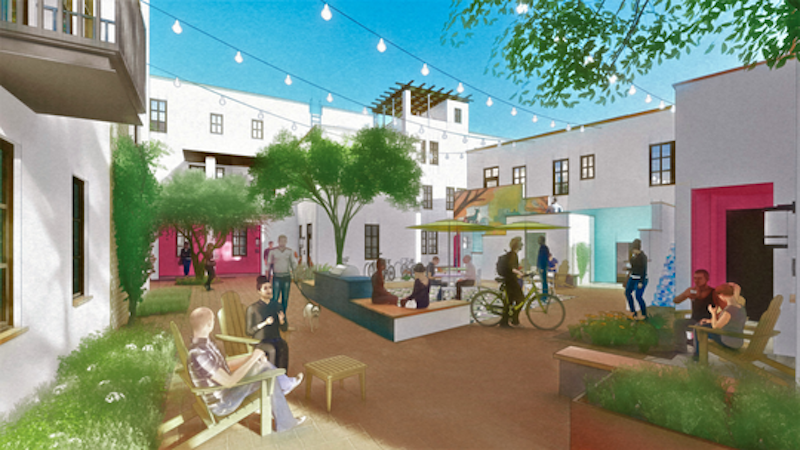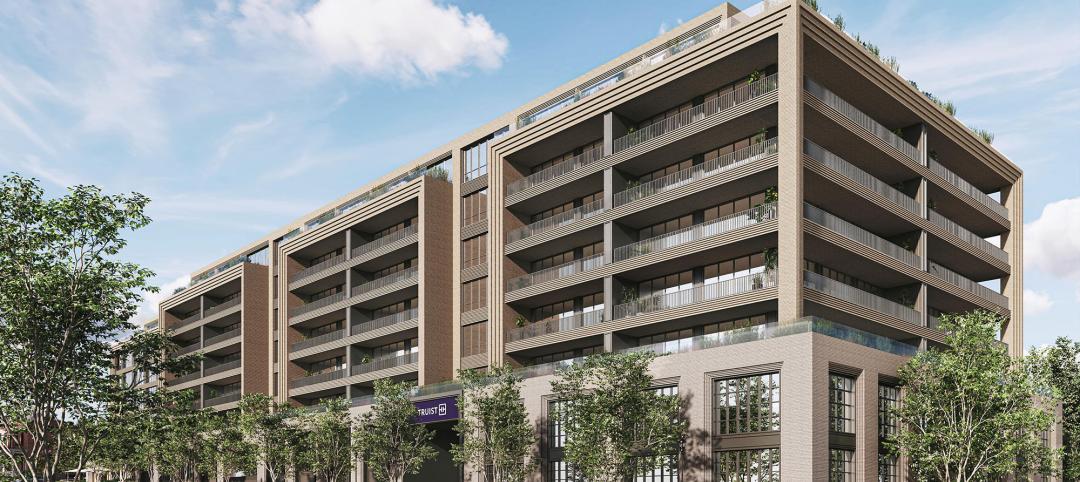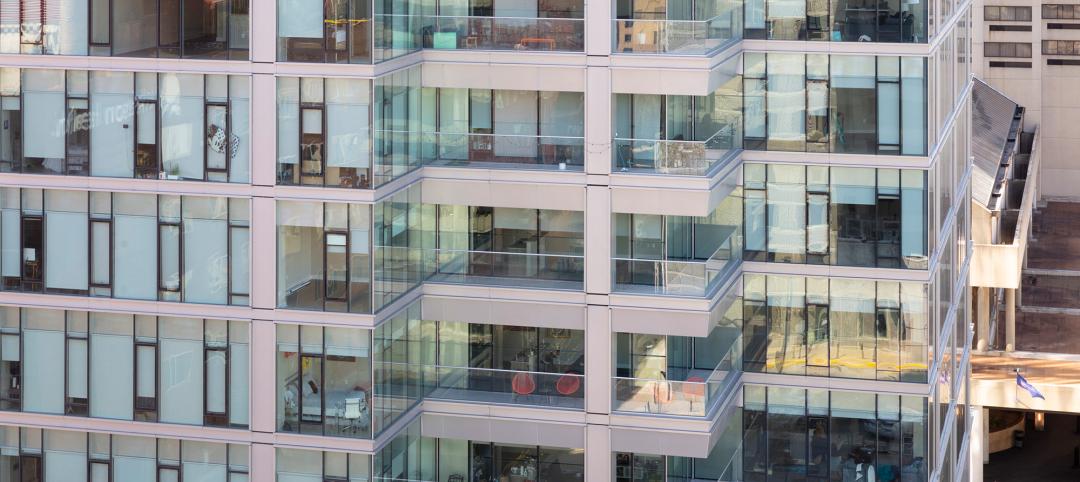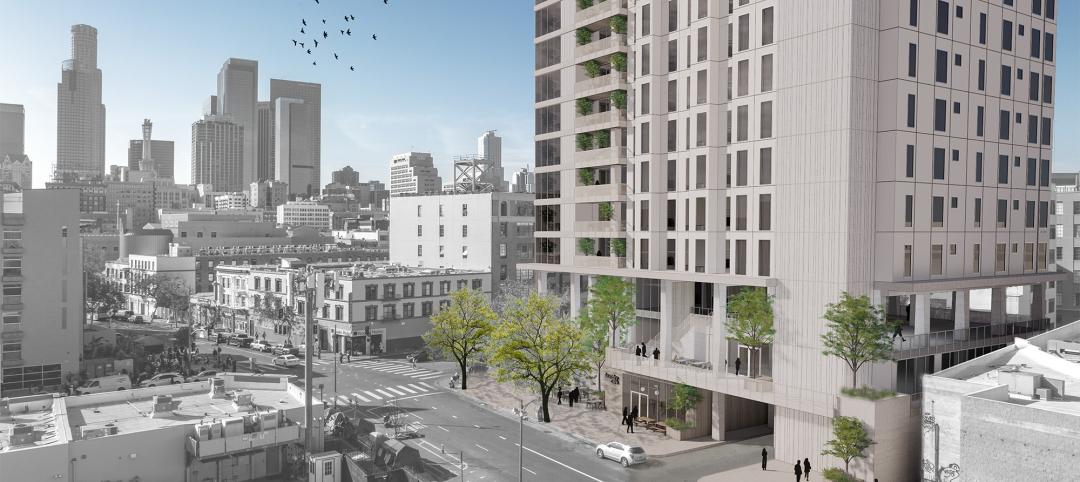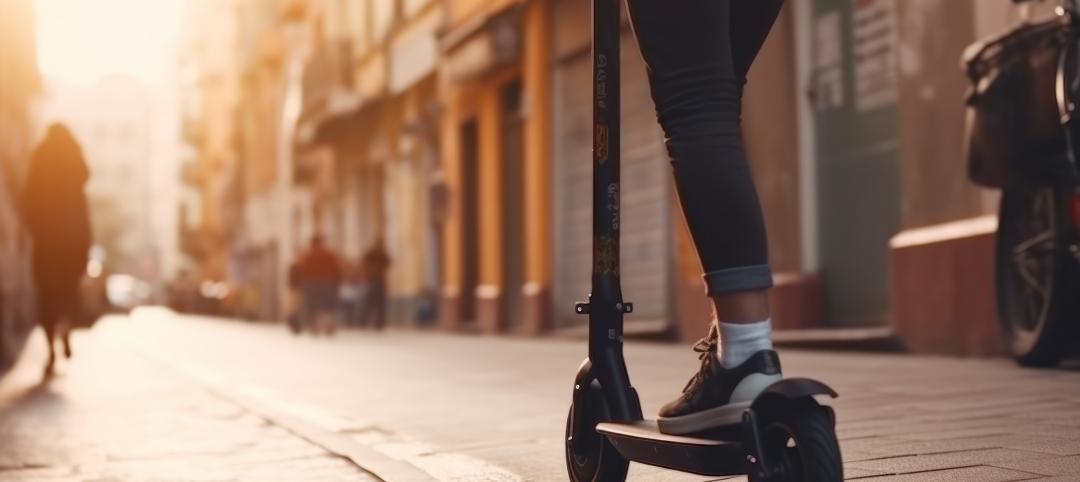Culdesac, a developer that specializes in building car-free neighborhoods from scratch, operates with a key insight in mind: the way we move defines the way we live. And because how we move is changing, thanks to things like ridesharing, the way we live should change as well.
As such, Culdesac Tempe, currently under construction on a 16-acre site in Tempe, Ariz., will be the first car-free neighborhood built from scratch in the United States, according to the developer. The $140 million project will provide 636 apartments for approximately 1,000 residents, with space for zero private cars. That’s right, if you want to live in Culdesac Tempe, you will need to leave your wheels behind. The neighborhood’s one small mini-lot will be stocked with hourly rentable car-sharing, such as GetAround, Turo, or Zipcar, and the perimeter of the neighborhood will be stippled with rideshare pick-up zones.
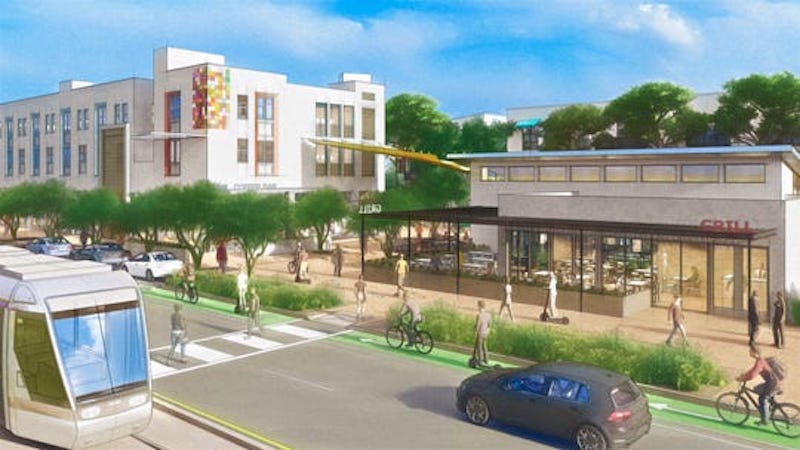
Space that is typically set aside for streets and parking lots will instead be used for acres of greenspace, courtyards, and shops. Not having to create a maze of pavement for vehicles means more than half of the land area will be covered in landscaping and greenery, a ratio not seen in urban developments.
See Also: Redefining lost urban spaces: 5 ways to turn a laneway into a “lanescape”
But Culdesac Tempe doesn’t plan on leaving its residents stranded without any transportation besides their own two feet. The neighborhood will bring together services like ridesharing, shared bikes and electric scooters, same day grocery delivery, and an on-site light rail station that connects to the downtown to mitigate any headaches associated without having a private vehicle. The neighborhood will also feature a pool, a dog park, and a gym.
Another interesting idea Culdesac Tempe will be trying looks to reimagine the guest room. Instead of private guest rooms, which often times aren’t even used, residents will be able to put up friends in bookable guest suites strategically placed throughout the neighborhood.
Culdesac Tempe is slated to launch in late 2020.
Related Stories
Urban Planning | Jan 2, 2024
Federal Highway Administration releases updated traffic control manual
With pedestrian deaths surging nationwide, the Federal Highway Administration released a new edition of the Manual on Uniform Traffic Control Devices for Streets and Highways. The manual contains standards for street markings and design, standardizing signage, and making driving as seamless as possible.
Urban Planning | Dec 18, 2023
The impacts of affordability, remote work, and personal safety on urban life
Data from Gensler's City Pulse Survey shows that although people are satisfied with their city's experience, it may not be enough.
Multifamily Housing | Nov 30, 2023
A lasting housing impact: Gen-Z redefines multifamily living
Nathan Casteel, Design Leader, DLR Group, details what sets an apartment community apart for younger generations.
Condominiums | Nov 6, 2023
Douglas Elliman launches its first Metro D.C. condominium project
Douglas Elliman, one of the largest independent residential real estate brokerages in the United States, announced last week that the firm will be handling the sales and marketing for Ten501 at City Centre West.
Office Buildings | Oct 16, 2023
The impact of office-to-residential conversion on downtown areas
Gensler's Duanne Render looks at the incentives that could bring more office-to-residential conversions to life.
Urban Planning | Oct 12, 2023
Top 10 'future-ready' cities
With rising climate dilemmas, breakthroughs in technology, and aging infrastructure, the needs of our cities cannot be solved with a single silver bullet. This Point2 report compared the country's top cities over a variety of metrics.
Resiliency | Aug 7, 2023
Creative ways cities are seeking to beat urban heat gain
As temperatures in many areas hit record highs this summer, cities around the world are turning to creative solutions to cope with the heat. Here are several creative ways cities are seeking to beat urban heat gain.
Affordable Housing | Jul 27, 2023
Repeatable, supportive housing for the unhoused
KTGY’s R+D concept, The Essential, rethinks supportive housing to support the individual and community with a standardized and easily repeatable design.
Urban Planning | Jul 26, 2023
America’s first 100% electric city shows the potential of government-industry alignment
Ithaca has turned heads with the start of its latest venture: Fully decarbonize and electrify the city by 2030.
Urban Planning | Jul 24, 2023
New York’s new ‘czar of public space’ ramps up pedestrian and bike-friendly projects
Having made considerable strides to make streets more accessible to pedestrians and bikers in recent years, New York City is continuing to build on that momentum. Ya-Ting Liu, the city’s first public realm officer, is shepherding $375 million in funding earmarked for projects intended to make the city more environmentally friendly and boost quality of life.


